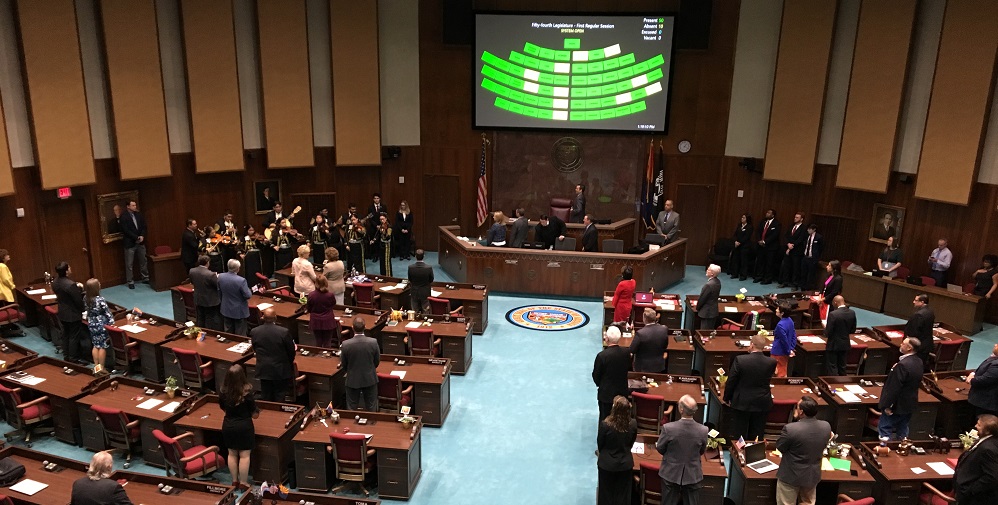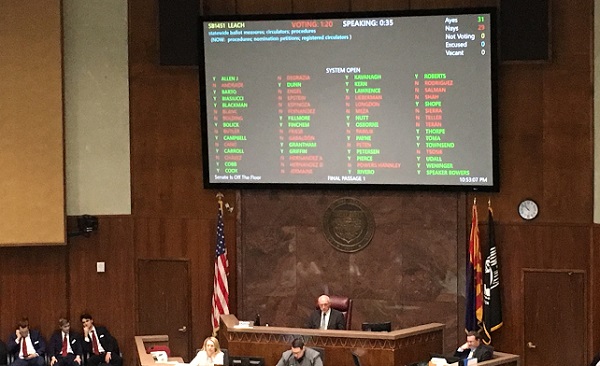Apparently some Arizona legislators think that they are the only ones entitled to vote since they keep proposing bills to limit our ability to vote or exercise our constitutional right to enact citizens initiatives or even protest their actions. Please, speak up on RTS to protect our rights in our democracy.
You can weigh in on the following bills being heard in committee this week before they go to a vote.
If you had an account with
RTS previously, it is still active. If you do not have an account, you can set one up through
Civic Engagement Beyond Voting. (Someone will have to help you activate it as it requires going to the Capitol.)
 Monday, March 15thSenate Committee on Government at 2:00 PM
Monday, March 15thSenate Committee on Government at 2:00 PMHB2569 elections; private funding; prohibition (Hoffman: Barton, Biasiucci, et al) prohibits the state or other public bodies from utilizing any private dollars to help conduct or administer elections. This would severely hamstring the state and counties as they receive private grants and in-kind support to fund election work as the legislature does not adequately fund it. OPPOSE.
HCR2023 elections; state authority; infringement; opposition (Hoffman: Barton, Biasiucci, et al) says the AZ Legislature opposes the federal government interfering with the legislature's authority over elections and urges Congress to oppose HR1, a bill that would limit voter suppression and provide for automatic voter registration for federal elections, prohibit improper voter list purges, including based on not voting in a recent election, and prohibit requiring additional identification (beyond a signature) when voting by mail. OPPOSE.
SB1003 early voting; signature required; notice (Ugenti-Rita) limits curing an early ballot with a missing signature to 7:00 PM on Election Day. Currently, they can take several days to contact voters to let them know they forgot to sign and allow them an opportunity to sign. This is unnecessarily restrictive. OPPOSE.
SB1010 (now: recounts; requests; procedures; audits) (Mesnard) increases the minimum number of precincts in a post-election hand counts and allows individuals to file an action and bond in Superior Court for a recount of any election or portion of an election that is not subject to an automatic recount. So, people with money can challenge any election and demand a recount? OPPOSE.
SB1409 zoning ordinances; property rights; costs (Petersen) requires cities to consider impacts on the costs of housing before adopting any zoning ordinance or zoning ordinance text amendment. While not as bad as it was, it is still intended to limit protective actions by the cities. OPPOSE.
SB1497 ballot measures; proposition 105; disclosure (Ugenti-Rita) requires the official ballot and the publicity pamphlet to include a Proposition 105 notice. This notice will appear right above both the first statutory measure and also right above the first referendum. The notice states, "NOTICE: PURSUANT TO PROPOSITION 105 (1998), THESE MEASURES CANNOT BE CHANGED IN THE FUTURE IF APPROVED ON THE BALLOT EXCEPT BY A THREE-FOURTHS VOTE OF THE MEMBERS OF EACH HOUSE OF THE LEGISLATURE AND IF THE CHANGE FURTHERS THE PURPOSE OF THE ORIGINAL BALLOT MEASURE, OR BY REFERRING THE CHANGE TO THE BALLOT." The Legislature should absolutely not put this on the actual ballot. The ballot is no place for messaging, analysis, etc. That belongs in campaign literature and in some cases may be appropriate for the publicity pamphlet. We do not put any other notices on the actual ballot, including fiscal analysis, why include this? OPPOSE.
SB1531 petition signatures; description; invalidity (Mesnard: Leach) voids the signature of any initiative or referendum petition signer that signs the petition without either hearing or reading the initiative or referendum description printed on the petition. This is another ridiculous requirement.
What if you actually had read the measure? Why should you have to read or hear the description? It also says the circulator has to cross out a signature if they think the person did not read or listen to the description. OPPOSE.
HB2309 violent; disorderly assembly; public order (Roberts: Barton, Biasiucci, et al) defines a violent and disorderly assembly as when a gathering of seven or more people, with the intent of engaging in a riot, causes damage to property or injures another person; makes participating in a disorderly assembly a class 6 felony; and targets protesters by increasing the penalties of lower level offenses to a felony if part of a gathering. This is clearly targeting the movement for Black Lives and people of color. OPPOSE.






